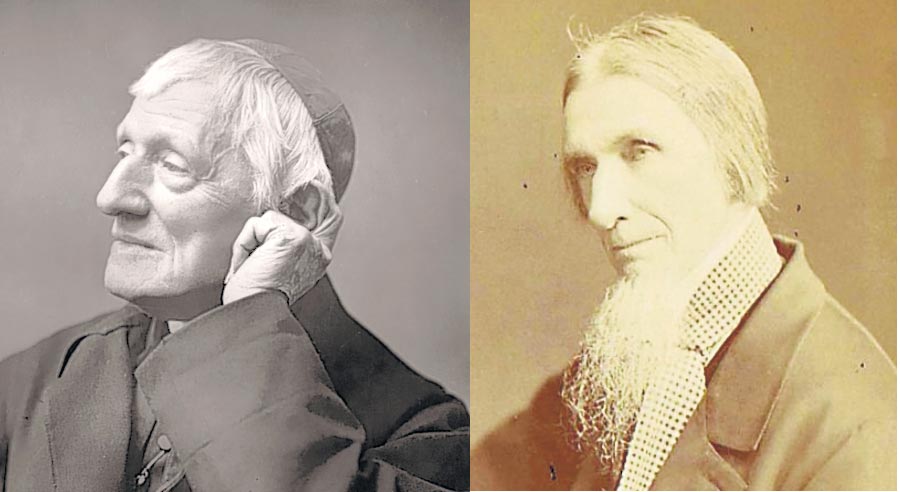Saintly Newman had a smarter, younger brother
Beatification plans have revived interest in a forgotten Victorian.

When the Pope appears for his final public mass in Birmingham's Cofton Park tomorrow morning, it will mark the climax of his four-day state visit.
Watched by a crowd of some 70,000 pilgrims, Pope Benedict XVI will put Cardinal John Henry Newman one step closer to becoming the first English person who has lived since the 17th century to be officially recognised as a saint by the Roman Catholic Church.
The Pope has championed the cause of Cardinal Newman, one of the 19th century's most-renowned theologians. He regards Newman as a man of deep spiritual and academic importance who was a major boon for the Catholic Church following his defection from Anglicanism to Rome.
But not everyone is as favourable to the cause. Some believe that the cardinal was a bigot and an obscurantist who has been inappropriately lauded by a church that is desperate to find a post-Reformation figure from Britain to beatify. Gay rights campaigners and some academics also point to the intense relationship he shared with a man throughout his life as evidence that a man the Catholic Church wants to one day canonise might have been gay.
Others say that more attention should be paid to a different Newman: the cardinal's younger brother, Francis William, an equally gifted academic who has little of the baggage associated with his elder brother.
Francis Newman has faded into obscurity, but supporters say Britain would do well to remember the youngest member of the Newman dynasty. As a committed Unitarian and radical free thinker who was critical of ecclesiastical authority, he would not appeal to the Catholic Church.
"He was an excellent person and a wonderful thinker," explains Christopher Walker, a historian who is currently researching Francis Newman for a book on religion and reason. "His brother felt the need for some sort of authority structure to tell him what and how to believe. That was partly why he moved towards Catholicism. Francis was the 19th century's equivalent of a Sixties rebel. He knew he didn't need an authority to tell him what to believe."
By the time his elder brother defected to Rome and wrote his famous Apologia, explaining his reasons for adopting Catholicism, Francis Newman had already written his own spiritual tracts detailing his journey from Calvinism to Unitarian theism. His Phases of Faith: Or, Passages from the History of my Creed, is considered one of his finest works.
Although the two brothers were close in their youth, they drifted away from each other over time. Francis Newman's ideal was a church where congregants put aside unanswerable questions such as the meaning of Christ or God and concentrated on ethics instead, a church built "purely on an ethical basis, leaving theological questions open".
But his academic ability lay far beyond theology. Throughout his life he wrote about a wide range of subjects, including religion, philosophy, politics, history, maths and economics. His bibliography includes tracts on Roman history, grammar, works in Arabic and even a history of Hebrew monarchies.
As a graduate from Oxford, he travelled to Baghdad and became a preacher at a time when western Europe was producing vast numbers of missionaries. He was a fluent Arabic speaker but he soon fell out with the missionary movement and moved back to Britain where he continued his academic career at University College London.
While Francis William Newman moved in Nonconformist circles, his elder brother became a key figure within the Oxford Movement and eventually converted fully to Roman Catholicism in 1845, rising swiftly to cardinal and becoming one of the church's most influential thinkers.
Pope Benedict holds John Henry Newman in such high esteem that he has even decided to break his own beatification rules. Vatican guidelines state that figures should be beatified in their diocese by a local bishop but Benedict has made the beatification mass the climax of his visit.
Join our commenting forum
Join thought-provoking conversations, follow other Independent readers and see their replies
Comments